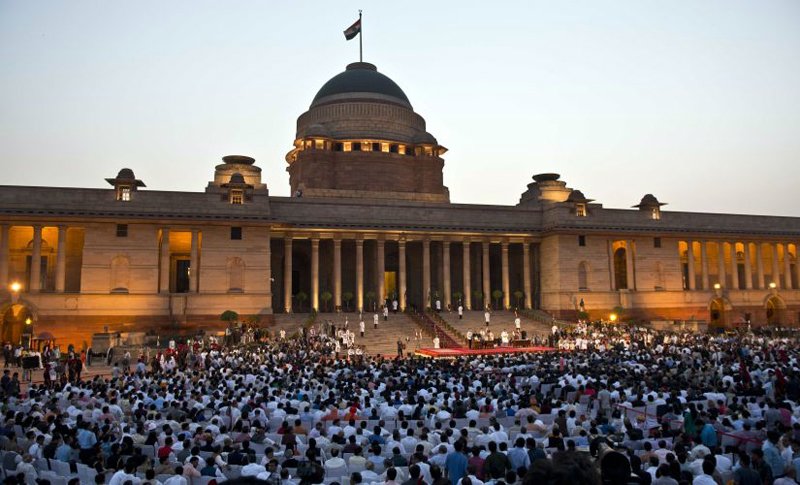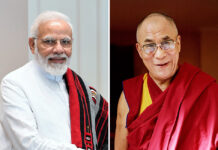
(TibetanReview.net, May30’19) – Prime Minister Narendra Modi of India has begun his second term May 30 on an apparently pro-China message. Unlike in 2014, neither the executive head of the Central Tibetan Administration (CTA) nor Taiwan’s New Delhi representative was among the invitees at his swearing-in ceremony.
Although widely seen as the Tibetan government in exile, CTA is not recognized by India. India also defers to China’s view that the self-ruling Taiwan is not an independent country but part of the People’s Republic of China.
During his swearing-in ceremony in 2014, CTA President Lobsang Sangay and Taiwanese representative Chung-Kwang Tien were both among the invitees.
Taiwan is an Asian economic powerhouse and has a representative office in New Delhi. Taiwanese investment in India has been rising across sectors, including steel, telecom and information technology, noted economictimes.indiatimes.com May 30.
India has centuries-old close historical and cultural ties with Tibet and has been hosting a vibrant exile Tibetan community and their leader, the Dalai Lama, after China brutally crushed a Tibetan uprising against the occupation rule in 1959.
The new development is not seen as necessarily representing a shift in policy in New Delhi. “The Indian government is not bending backwards to appease China by this move, as Taiwan continues to have strong economic ties with India and Tibetan government in exile operates from India,” the report quoted a diplomacy expert as saying.
Modi will host Chinese President Xi Jinping this year for an informal summit, reported Reuters May 29, citing an Indian foreign ministry spokesman, after meeting several times over the past year to try to defuse tension. The two held their first informal summit in Wuhan in Apr 2018 and at that meeting Xi had accepted Modi’s invitation to come to India for a second meeting, the report noted.
Also, the economictimes.indiatimes.com report noted that within a fortnight of his swearing in, Modi was likely to meet Xi in Bishkek on the sidelines of the Shanghai Cooperation Organisation summit over Jun 13-14. This will be followed by a Russia-India-China (RIC) summit and an informal Brazil, Russia, India, China and South Africa (BRICS) summit in Osaka, Japan, on the sidelines of G-20 meet, bringing the two on the same platform ahead of an informal India summit later this year, it added.




